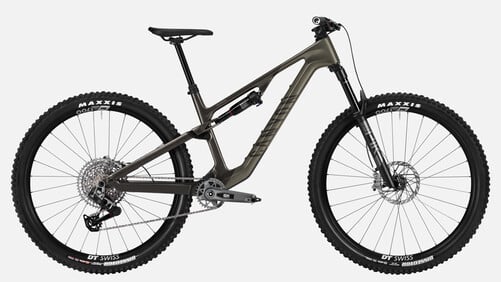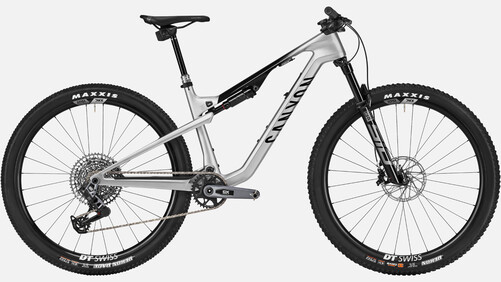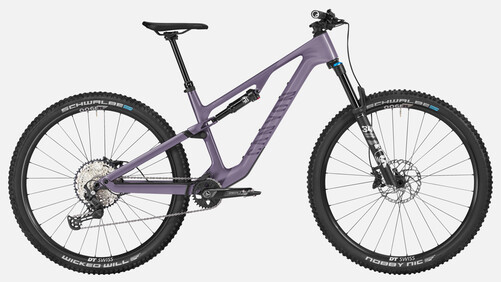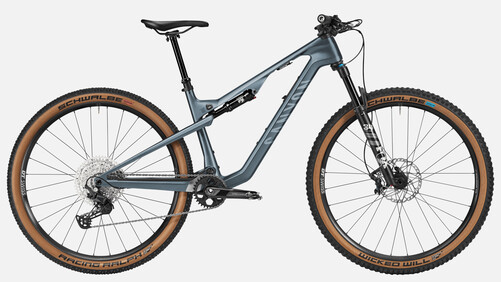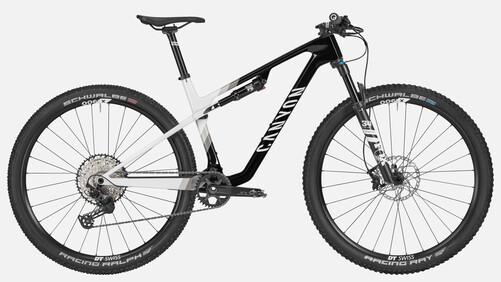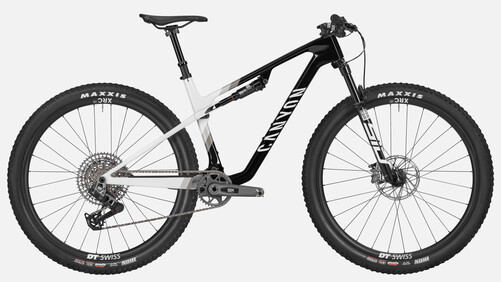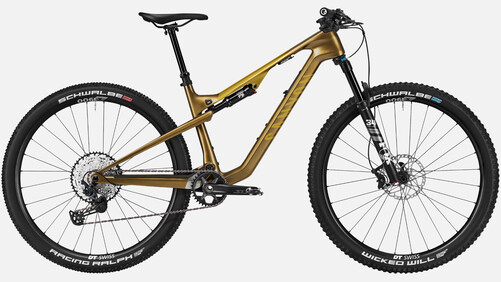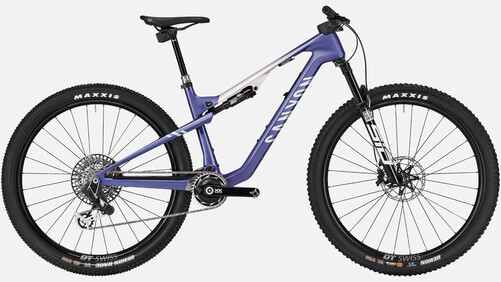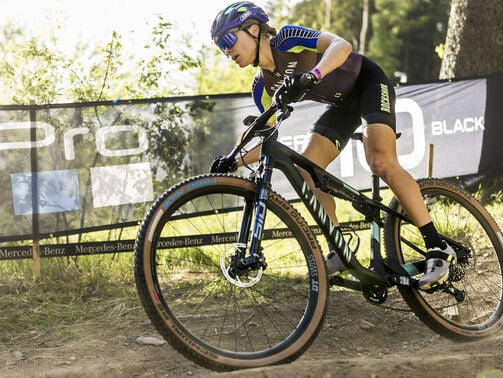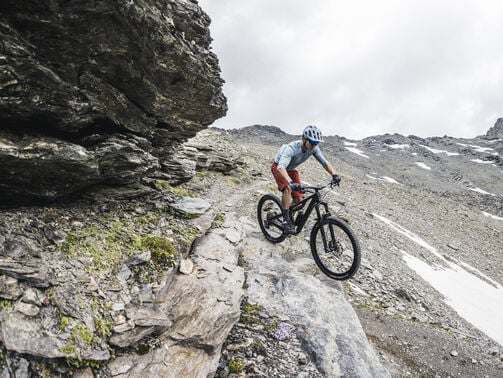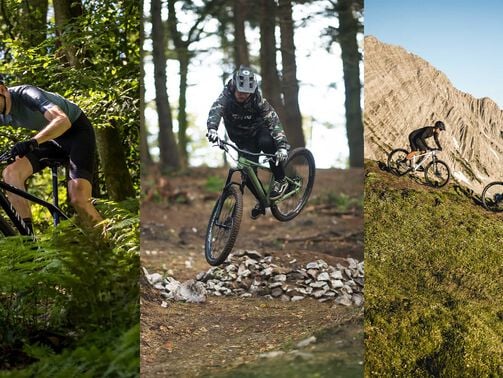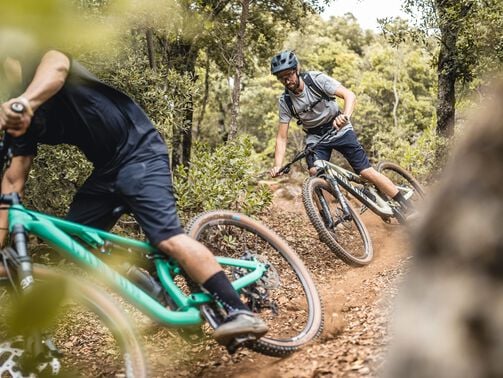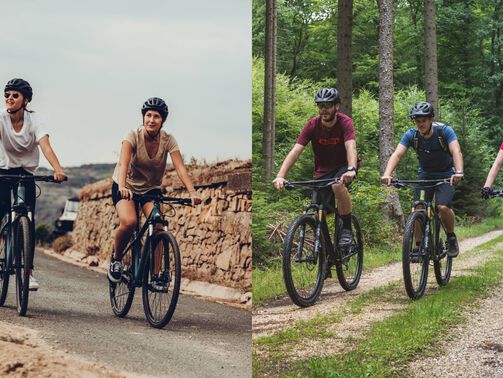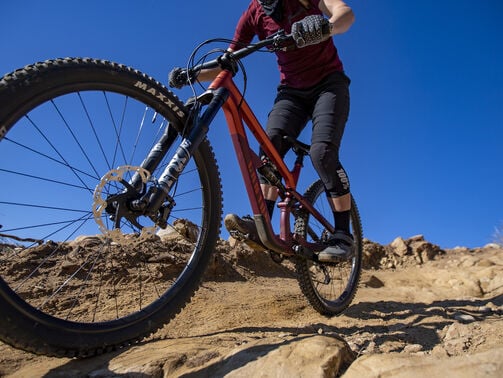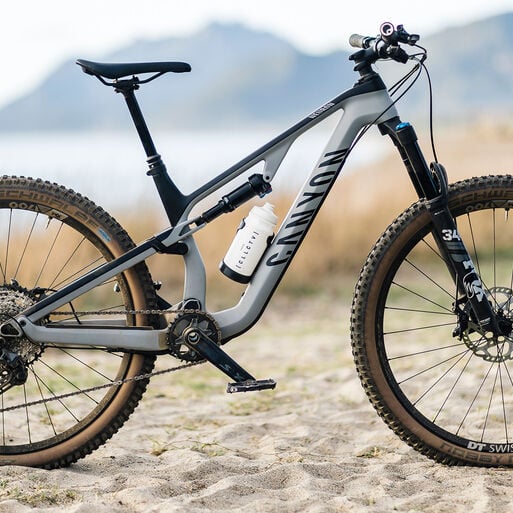
Lightweight MTBs
Here you will find the best lightweight mountain bikes for men and women. Check out our offer and choose your perfect MTB today!
-
5.099 €or financing from 153,64 €/Mo.
-
- Colour: Pale Lavender
- Colour: Slate Silver
SRAM GX Eagle AXS Transmission, Rock Shox Pike Select+ RC24.049 €or financing from 122 €/Mo. -
- Colour: Chrome Level 1
- Colour: Mirage Blue
SRAM GX Eagle AXS Transmission, Rock Shox SID Select+ Remote5.799 €or financing from 151,73 €/Mo. -

Refer a friend - get 5% extra off
Refer a friend for 5% off a new MTB -
3.149 €or financing from 112,39 €/Mo.
-
- Colour: Chrome Level 1
- Colour: Late Sunset
Shimano Deore XT M8100, FOX 34 Stepcast Performance Elite4.549 €or financing from 137,07 €/Mo. -
- Colour: Chrome Level 1
- Colour: Mirage Blue
Shimano Deore M6100, FOX 34 Stepcast Performance 3-Pos Remote3.039 €Original price3.349 €You save 310 €or financing from 108,46 €/Mo. -
- Colour: Podium Black
- Colour: Vermillion 1
Shimano Deore SLX M7100, FOX 34 Stepcast Performance 3-Pos Remote3.549 €or financing from 126,66 €/Mo. -
- Colour: Podium Black
- Colour: XCObalt
SRAM GX Eagle AXS Transmission, RockShox SID SL Select+4.549 €or financing from 137,07 €/Mo. -
- Colour: Chrome Level 1
- Colour: Late Sunset
Shimano Deore SLX M7100, FOX 34 Stepcast Performance 3-Pos Remote3.749 €or financing from 112,96 €/Mo. -
- Colour: Lightning Mauve
SRAM XX Eagle AXS Transmission, Rock Shox SID Ultimate 3-Position Remote8.149 €or financing from 1.358,17 €/Mo. -
3.049 €or financing from 108,82 €/Mo.
-
2.549 €or financing from 90,97 €/Mo.
-
2.549 €or financing from 90,97 €/Mo.
-
- Colour: Berlin Sky
- Colour: Azzuro Cielo
Shimano Deore XT M8100, FOX 32 Step-Cast Performance 2-Pos Remote3.049 €or financing from 108,82 €/Mo. -
1.649 €or financing from 72,61 €/Mo.
-
- Colour: Azzuro Cielo
SRAM S1000 Eagle Transmission, RockShox SID SL Select+ 2-Position Remote4.049 €or financing from 122 €/Mo. -
- Colour: CLLCTV
SRAM XX SL Eagle AXS Transmission, RockShox SID SL Ultimate 3P Remote8.649 €or financing from 1.441,50 €/Mo. -
6.399 €or financing from 167,42 €/Mo.
-
2.049 €or financing from 90,22 €/Mo.
-
- Colour: Berlin Sky
SRAM X0 Eagle AXS Transmission, RockShox SID SL Ultimate 2-Position Remote5.099 €or financing from 153,64 €/Mo. -
7.099 €or financing from 185,74 €/Mo.
-
3.679 €Original price
4.799 €You save 1.120 €or financing from 131,30 €/Mo. -
1.539 €Original price
1.949 €You save 410 €or financing from 67,76 €/Mo.
Related Categories
Lightweight Mountain Bike
While lightweight bikes in general can weigh as little as 6.8 kg, weight classifications for mountain bikes are generally a little higher. This is due to the need for several weight-adding components, such as larger brakes and suspension systems on mountain bikes. There is no overall consensus regarding the cut-off point for an MTB to be considered ‘lightweight’, though typically any model around 11.3 kg and below is considered on the lighter side.
The extensive Canyon range of lightweight mountain bikes begins at 12.16 kg and culminates with an industry-leading 8,92 kg. Lightweight MTBs typically feature a carbon fibre frame to reduce weight and improve strength. Further weight is saved through cutting-edge components and lightweight – though still durable – wheels.
The best lightweight mountain bikes can help shave entire seconds off a tough uphill climb or cross-country adventure, giving you the competitive edge necessary to outpace a rival or redefine your personal best. Because Canyon refuses to compromise ride performance and safety for the sake of weight reduction, all MTBs in the lightweight range can traverse the same rugged terrain as a traditional MTB, only with a lighter touch.
Is a lighter mountain bike better?
Available in both hardtail and full suspension models, lightweight MTBs are suitable for all kinds of off-road adventures from high-octane trail busting to endurance-testing cross-country trekking. However, the uphill battle is where the lightweight mountain bike truly shines. The steeper the incline and higher the climb, the more grateful you will be that you decided to leave that extra weight behind.
Though, it is important to consider that the opposite is also true. Heavier objects can achieve greater speeds travelling downhill. That’s why you will find Canyon’s range of downhill mountain bikes tend to be on the heavier side, featuring different components and frame geometry designed to get you to the bottom in style and comfort.
What’s more, though shaving an extra 200 g might mean the difference between the best and the rest for a professional cyclist, a super lightweight mountain bike may not be the best fit for every rider. Take the e-Mountain bike range from Canyon as an example. The addition of a powerful motor certainly increases weight, but it enables the average rider to go further and faster than ever before.
Light mountain bike frame materials
Canyon bikes are made from the best materials available – for performance you can depend on. The lightweight MTB frame is crafted using cutting-edge carbon fibre technology to maximise weight-saving potential and performance while minimising wear and tear, even under the most challenging conditions. Even though carbon fibre is lighter than alternatives, it also offers greater strength and rigidity, making it a truly superior material.
Industry-leading components utilise the latest materials, such as premium ceramic bearings, to ensure weight is kept to a minimum and rides are smoother than ever. Meanwhile, innovative solutions like integrated cable routing and impact protection make for an optimised geometry and reduced risk to both the bike and rider in the event of a crash.
Learn more on how frame weight can affect performance in our mountain bike geometry guide.
The lightest Canyon MTB
The lightest mountain bikes are almost always carbon mountain bikes. Carbon is the lightest, strongest material currently used for constructing bikes.
Canyon’s lightest hardtail MTB is also one of the lightest on the market. Weighing a gravity-defying 8.92 kg, the Exceed CF SLR is the shining light of the Canyon cross-country MTB range. Featuring an ultra-light carbon fibre frame and cutting-edge components designed to shed weight without compromising an ounce of performance, the Exceed is a lightweight carbon hardtail MTB with pedigree; the same model was ridden to victory by Andreas Seewald in the 2021 marathon World Championship.
For the ultimate in control and comfort under pressure, weighing in at just 9,8kg the Lux World Cup CFR is an uber-lightweight full-suspension mountain bike for every terrain. A super-light carbon frame equipped with a RockShox SID SL Ultimate suspension fork and self-lubricating CeramicSpeed SLT bearings. With a carbon full-suspension bike, shaving weight never means sacrificing performance.
Lightweight bike pros
A lightweight mountain bike offers several advantages. Here is a brief overview:
- Improved uphill speed: A lightweight MTB can help you reach greater speeds and shed seconds off an intense uphill climb.
- Faster acceleration: While top speeds between lighter and heavier mountain bikes are comparable, you will notice that weight reduction as you pick up the pace.
- Better for endurance: Less weight means less physical exertion while climbing, allowing you to travel even further than before.
- Stronger frame: A lightweight MTB frame is likely to be made from carbon fibre. Not only is carbon fibre lighter than other alternatives, it is also stronger and more rigid.
Lightweight bike cons
Investing in the best lightweight mountain bike is not necessarily for everyone. Here are a few other factors to consider:
- Higher costs: While carbon fibre offers numerous benefits, particularly for a lightweight mountain bike, those benefits come at a financial premium.
- Less effective downhill: If you are primarily concerned about improving your descent performance, a downhill bike might be a better choice.
Why Canyon?
Looking for full-suspension or hardtail? Planning to travel cross-country, shred the enduro trail, or achieve greater downhill control and speed? Whatever your thrill, Canyon is the mountain bike expert of choice for passionate and professional cyclists the world over.
Our lightweight MTB range features some of the lightest models on the market, outfitted with cutting-edge components and carbon fibre technology designed to offer the best performance, safety, and durability possible.
We sell our bikes without any intermediaries. That’s how we offer the best value for money alongside a 6-year warranty and 30-day return policy as standard.


